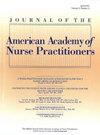Neuropathology in Alzheimer's disease: target of pharmacotherapy.
Journal of the American Academy of Nurse Practitioners
Pub Date : 2005-03-01
引用次数: 0
Abstract
The pathogenesis of AD is complex and not yet fully understood. A number of factors, including amyloid plaques, NFTs, and inflammatory processes, are likely to contribute to development of the disease. Acetylcholine and glutamate are intimately involved in learning and memory. Hypotheses implicating defects within both neurotransmitter systems in AI) are recognized. This knowledge coupled with ongoing discoveries about the multiple pathophysiologic pathways involved in development and progression of AD has given rise to several plausible therapeutic targets. Therapies addressing some of these targets (ie, acetylcholine, glutamate) have already shown clinical efficacy in treating AD while other targets continue to be investigated.
阿尔茨海默病的神经病理学:药物治疗的目标。
阿尔茨海默病的发病机制是复杂的,尚未完全了解。许多因素,包括淀粉样斑块、nft和炎症过程,都可能导致疾病的发展。乙酰胆碱和谷氨酸与学习和记忆密切相关。人工智能中两种神经递质系统存在缺陷的假设得到了认可。这些知识加上对阿尔茨海默病发生和发展过程中涉及的多种病理生理途径的不断发现,已经产生了几个合理的治疗靶点。针对其中一些靶点(如乙酰胆碱、谷氨酸)的治疗方法已经显示出治疗AD的临床疗效,而其他靶点仍在研究中。
本文章由计算机程序翻译,如有差异,请以英文原文为准。
求助全文
约1分钟内获得全文
求助全文

 求助内容:
求助内容: 应助结果提醒方式:
应助结果提醒方式:


